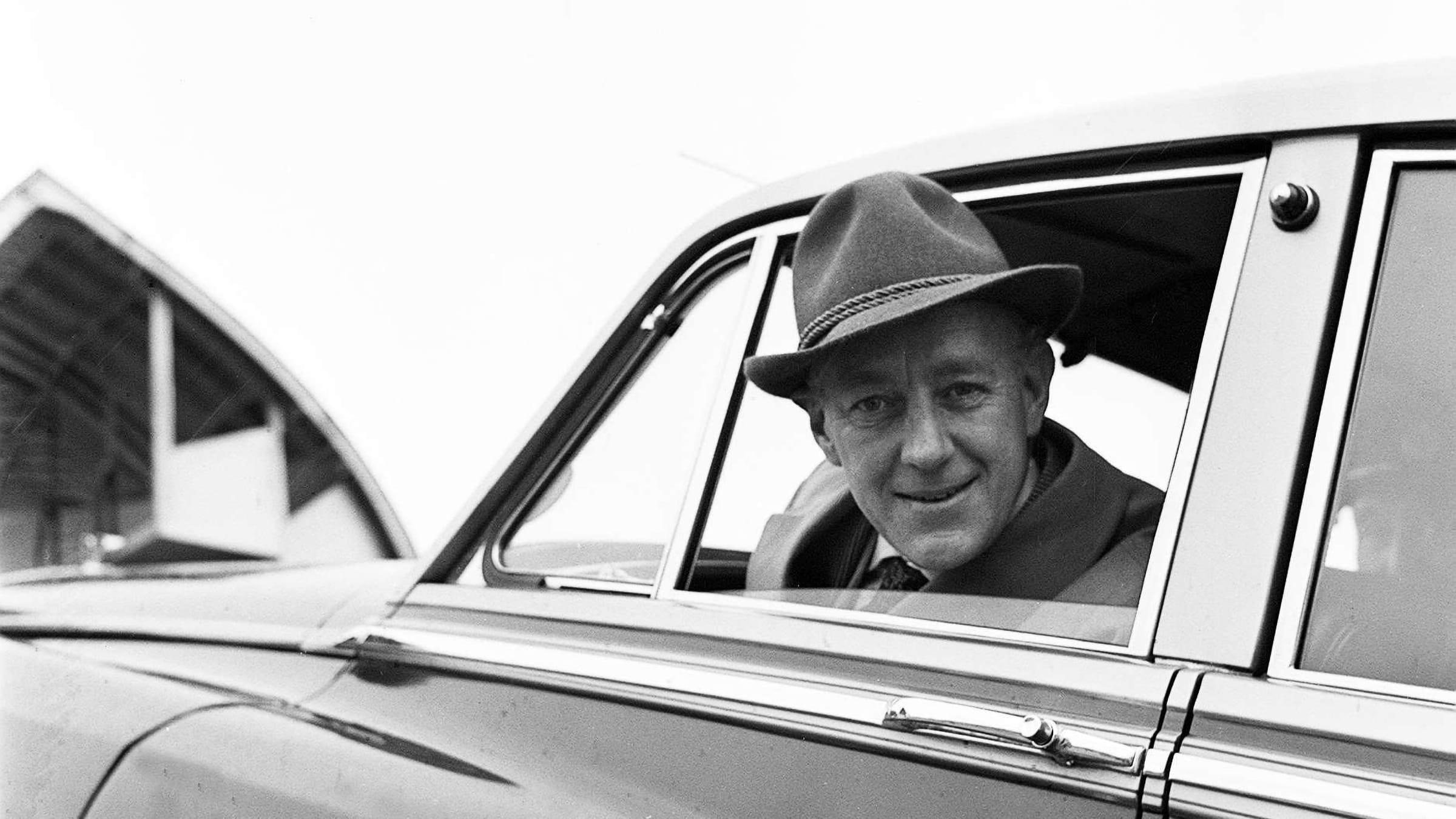RELATED ARTICLE
Kind Hearts and Coronets: Ealing’s Shadow Side
By Philip Kemp
Oliver Twist
The Criterion Collection

He is the most disarming and self-effacing of the English actors who dominated stage and screen in the middle of the twentieth century—the others were John Gielgud, Ralph Richardson, Michael Redgrave, and Laurence Olivier. Those fellows carried themselves like grand actors; they had brave, proud voices that signaled poetry or drama. Alec, by contrast, was slight, soft-spoken, losing his hair and bashful to the point of retreating into the background. He was most plausible as a suburban bank manager or a minor naval officer. Indeed, on one occasion when asked to name the best performance he had ever given, he said: “That of a very inefficient, undistinguished, junior officer in the Royal Navy Volunteer Reserve. It proved to be the longest-running show I have ever been in.”
You get his sense of humor there—dry,
deferential, without vanity. But with a benevolent, distant smile if you
watched him closely. You felt he appreciated absurdity. When he made The Swan (1956), with Grace Kelly (her
last film, before Monaco), they had a scene on a balcony in a breeze, looking
out over a lake. The wind blew hard and Grace got dust in her eye. She had to
be made-up again with all the fuss that involved. Alec waited patiently—as he
told the story. Grace returned, lovely again. They did the scene once more but
now Alec’s hair piece blew off in the wind. Grace collapsed in laughter—not
unkind; there was a bond of amusement between them, then and always. I’ll come
back to that.
But how many actors—how many men?—would laugh if
their toupee took flight? For Guinness the mishap seemed natural and a useful,
gentle warning to anyone who reckoned he was in danger of being a star.
And yet. Alec Guinness could go wild in his
calm, gentlemanly way, especially when disguised. He was Fagin in Oliver Twist, a characterization derived
from the George Cruikshank drawings in the Dickens novel, plainly evil but
ingratiating, on the edge of the perverse, and as many people have observed, close
to anti-Semitic. There were other outrageous Alecs. In Kind Hearts and Coronets, he played eight members of the D’Ascoyne family, male and female,
caricatures, the opposite of ordinary. And it was Alec who, when sent the
script for that great satire, with the studio nervous about taste and
propriety, asked why only four D’Ascoynes were being murdered. He grasped the
audacious joke. “Oh no,” he murmured, “let’s make it eight.”
So he was modest, demure even, and not exactly
noticeable in person, with that hushed, respectful voice. But there was a kind
of demon inside him. That energy would carry him as the reprobate genius
painter, Gulley Jimson, in The Horse’s
Mouth. In time it would provide the iron will in the slim frame that drove
his Colonel Nicholson in The Bridge on
the River Kwai. That epic picture
is not perfect: the William Holden character is superfluous, an opportunity to
cast an American star to bolster the box office. But Nicholson is astonishing
in his physical collapse and moral rigidity. He could be a bank manager promoted
because of the war. He is a duty-bound obsessive ready to die for his code but
unaware how easily that unthinking allegiance may assist the Japanese war
effort. Nicholson is offered as a hero, but it’s the core of the film that he
is also a misguided fool. And Guinness does nothing to romanticize this
unyielding and dangerous man.
Beyond that, as a movie actor from a romantic
age, Alec was studiously cool in love scenes or sexual relationships on-screen.
The smothered desire in the man was evident in his George Smiley in Tinker Tailor Soldier Spy, where he is
mortified because his wife is betraying him. But perhaps his addiction to work
has provoked her. So Smiley takes cover in the company of men in the spying
trade—of course, that only leads to more betrayals. Did this detachment in
Guinness prompt stories that he might have a gay life, as well as a long, happy
marriage? We don’t know; we don’t need to care; but we wonder. And, as I said,
there was this long rapport with Grace Kelly. Be patient; I’ll come to that.